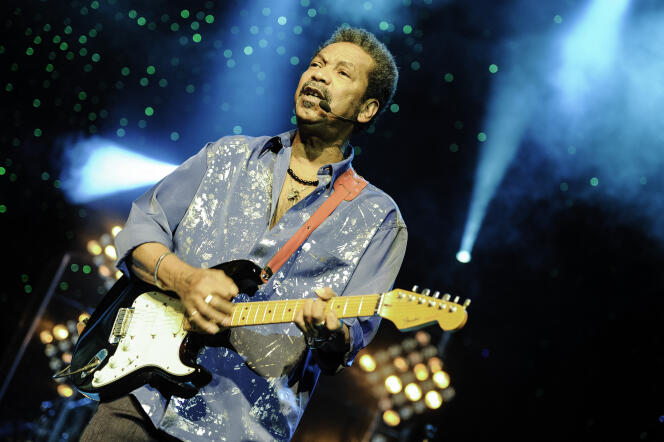


It is still hard to find a wedding or birthday party in France where José Sébéloué's voice does not resonate. Along with Clémence Bringtown, he was the lead singer, and guitarist, of La Compagnie Créole, the band behind a series of hits ("Vive le douanier Rousseau," "C'est bon pour le moral," "Le Bal masqué," "Ça fait rire les oiseaux") that have been an undeniable part of the country's collective memory since the 1980s. Sébéloué, 74, died in Paris on Sunday, September 3.
Born on September 17, 1948, in Ouanary, French Guiana, Sébéloué began his musical career with a local band, Pop-Corn, before founding La Compagnie Créole in 1975 with Bringtown, Julien Tarquin, Guy Bevert, and Arthur Apatout, musicians from the Martinique and Guadeloupe regions he had met in Paris. The crew adapted traditional tunes from the West Indian repertoire in a unique way until they crossed paths with Parisian Daniel Vangarde and Belgium's Jean Kluger in the early 1980s.
At the time, the pair made a name for itself in the Latin disco vein, signing hits with musicians from the Martinique (Gibson Brothers) and Guadeloupe (the Ottawan duo). A passionate fan of tropical music, Vangarde – the father of Daft Punk co-founder Thomas Bangalter – first produced an album of traditional biguine songs for La Compagnie, Blogodo (1982), all sung in Creole.
Success came a year later when, between sessions with disco star Amii Stewart, the Franco-Belgian producer's duo got the band to record a version of "C'est bon pour le moral," a song by Vangarde that had not found any takers. Before literally triumphing – thanks in particular to its airing on French television – the disco zouk color given by the musicians initially struggled to seduce radio stations. "Roger Kreicher, RTL's program director, had told me contemptuously: 'This is ballroom music,'" Vangarde recalled in an interview with Le Monde last year, adding he had answered back: "You couldn't please me more."
"The song had a bit of trouble getting off the ground," Kluger later said. "The band then started working on a new single, 'Vive le Douanier Rousseau' when they were selected to represent France at Eurovision in 1983." La Compagnie Créole came second in the contest, enabling the band to continue working on "C'est bon pour le moral," which eventually made its way onto the airwaves. It was soon followed by "Vive le douanier Rousseau," "Le Bal masqué," "Ça fait rire les oiseaux," and "Bons baisers de Fort-de-France," all of which benefited from late business magnate Francis Bouygues' passion for the band. In his position as owner of French television TF1, he managed to have the musicians appear 36 times on "Sacrée Soirée," an emblematic Saturday evening show in France in the 1980s.
You have 23.8% of this article left to read. The rest is for subscribers only.
